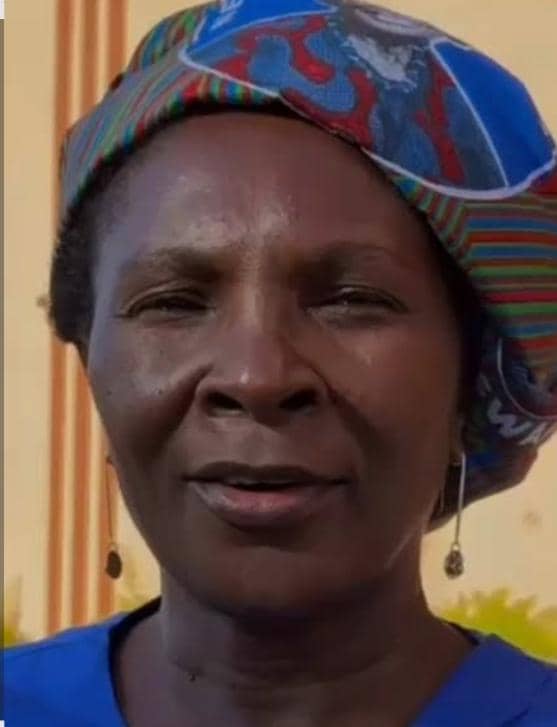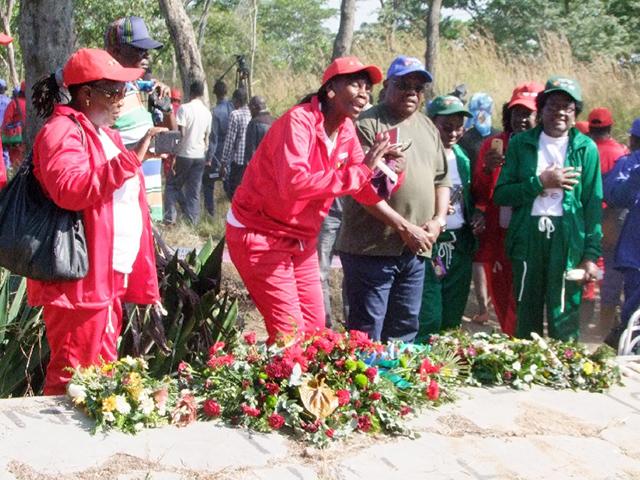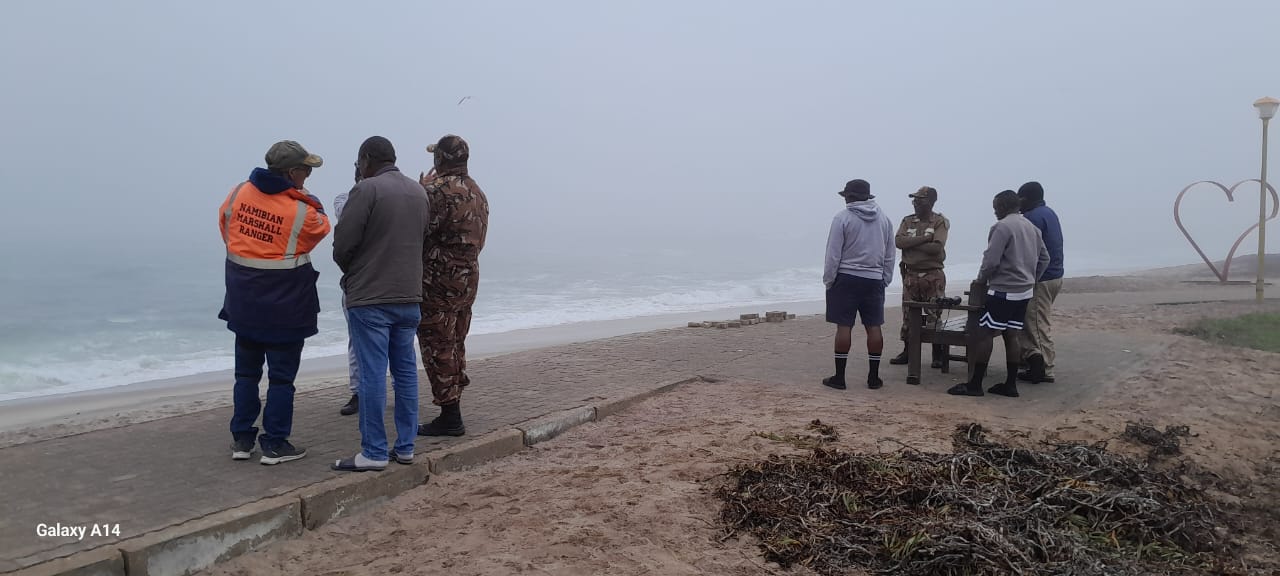CHRISTA Bracht has been feeding and looking after feral cats in Windhoek for the past 46 years – out of her own pocket.
It all started when she was a child and her parents took her and her two sisters to the cemetery to visit her grandmother’s grave. At the cemetery there were a lot of abandoned cats and Bracht saw the hunger in their eyes.When she turned 21 she got a job, bought a car and with her first salary she bought cat food and drove to the cemetery to feed the cats for the first time.Now, 46 years later, she is still feeding about 50 feral cats every day – at five locations around Windhoek.When she started feeding the cat colony at the cemetery, it was huge.The cats, dumped there by people who no longer wanted them, were left at the mercy of people who caught them in traps and killed them cruelly.At night, packs of roaming dogs went to the cemetery to hunt the cats.”This was especially brutal, as one would find the torn and hurt cats all over the next day.The feral cats are a manmade problem – people who do not fix their cats or who abandon their animals are the cause of the problem, as these cats then breed uncontrolled and huge feral cat colonies form,” says Bracht.In the beginning there were a few elderly ladies feeding feral cats at various locations in Windhoek and some of them asked Bracht for help, as they were getting too frail to cope with the workload.Over the years, Bracht started taking over more and more feeding spots.She later handed over some of her feeding spots to other women like Reinet Terblanche, who now feeds cats at four locations.Out of their pioneering work eventually grew the Cat Protection Society (CPS), which was formed to raise funds for sterilisation campaigns and veterinary treatment, and to re-home feral-born kittens.The kittens are removed from their mothers as young as four weeks of age, before they can learn the wild ways of their parents.They are then fostered at CPS volunteers’ homes, where they are house-trained and get plenty of attention and cuddles to “socialise” them – get them to trust and love people before being re-homed.Before she retired, Bracht could still afford to catch the female cats and have them spayed at her own expense to stop the colonies from growing.Sick cats were also caught and taken to the vet for treatment.If nothing more could be done for them, they were humanely put down.These days, being a pensioner, Bracht can no longer afford this and the Cat Protection Society has stepped in to pay the vets’ bills.COMMITMENT Every morning at around 03h00 Bracht gets up and starts preparing the food for the first feeding spot.She can only feed at this specific place very early in the morning, for the sake of her own safety and that of the cats.Verbal abuse and threats of violence are par for the course for women who feed feral cats.After the first feeding, Bracht returns home and starts preparing the food for the next feeding spots.Just before 07h00 she is out of the house and on her way to the next colony.Driving to and feeding the cats at the other four sites keeps her busy for two to three hours.”At the one place, I only feed every second day as it is out of my way and I cannot afford the petrol, so unfortunately the cats can only eat every second day,” she says.Now that she is a pensioner, she has a little more time to spend with the cats.She makes sure that each cat gets enough food and milk, and checks up on their health.When she was still working this was not possible – she used to put down the food and rush to the next feeding spot so that she could finish in time for the start of the workday.Bracht has not been out of Windhoek for the past 25 years.”In the beginning when the other old ladies were still alive and feeding I could now and then hand over my spots to them and they would feed the cats for me but they have all passed away and there is nobody whom I could burden with this responsibility.I also cannot go on holiday knowing that the cats would be sitting waiting for me and the food and then I don’t show up.”She says her husband and children have learned to cope with her not being there with them on holiday.At one stage Bracht had 25 cats of her own.Most of them had been rescued from the feral colonies as kittens.Nowadays, the Cat Protection Society can take them off her hands and find new homes for them.RESULTS The results of these volunteers’ work are clear to see.Windhoek’s feral cat colonies are all now much smaller than they were a few decades ago, mainly thanks to the CPS sterilisation campaign.The cats that still live in these colonies are healthy and well fed.It all comes at a personal cost to the volunteers though.Bracht has been assaulted and robbed of her car while feeding cats.She has also endured verbal abuse but nothing has stopped her from returning to the same spot the next day for the sake of the cats.Some of the other volunteers have suffered similar threats to their own safety – one was shot, raped and robbed while feeding cats at the cemetery in a well-publicised case five years ago.What makes them continue their charity work? Basically, they believe that every act of kindness towards another living being helps to make the world a better place.”Many people say to me that these are just strays and I should not care so much, but all I can offer them is good food.I cannot give them warmth or shelter but I can make sure that they at least eat well and I will continue to do so as long as I can,” says Bracht.At the cemetery there were a lot of abandoned cats and Bracht saw the hunger in their eyes.When she turned 21 she got a job, bought a car and with her first salary she bought cat food and drove to the cemetery to feed the cats for the first time.Now, 46 years later, she is still feeding about 50 feral cats every day – at five locations around Windhoek.When she started feeding the cat colony at the cemetery, it was huge.The cats, dumped there by people who no longer wanted them, were left at the mercy of people who caught them in traps and killed them cruelly.At night, packs of roaming dogs went to the cemetery to hunt the cats.”This was especially brutal, as one would find the torn and hurt cats all over the next day.The feral cats are a manmade problem – people who do not fix their cats or who abandon their animals are the cause of the problem, as these cats then breed uncontrolled and huge feral cat colonies form,” says Bracht.In the beginning there were a few elderly ladies feeding feral cats at various locations in Windhoek and some of them asked Bracht for help, as they were getting too frail to cope with the workload.Over the years, Bracht started taking over more and more feeding spots.She later handed over some of her feeding spots to other women like Reinet Terblanche, who now feeds cats at four locations.Out of their pioneering work eventually grew the Cat Protection Society (CPS), which was formed to raise funds for sterilisation campaigns and veterinary treatment, and to re-home feral-born kittens.The kittens are removed from their mothers as young as four weeks of age, before they can learn the wild ways of their parents.They are then fostered at CPS volunteers’ homes, where they are house-trained and get plenty of attention and cuddles to “socialise” them – get them to trust and love people before being re-homed.Before she retired, Bracht could still afford to catch the female cats and have them spayed at her own expense to stop the colonies from growing.Sick cats were also caught and taken to the vet for treatment.If nothing more could be done for them, they were humanely put down.These days, being a pensioner, Bracht can no longer afford this and the Cat Protection Society has stepped in to pay the vets’ bills.COMMITMENT Every morning at around 03h00 Bracht gets up and starts preparing the food for the first feeding spot.She can only feed at this specific place very early in the morning, for the sake of her own safety and that of the cats.Verbal abuse and threats of violence are par for the course for women who feed feral cats.After the first feeding, Bracht returns home and starts preparing the food for the next feeding spots.Just before 07h00 she is out of the house and on her way to the next colony.Driving to and feeding the cats at the other four sites keeps her busy for two to three hours.”At the one place, I only feed every second day as it is out of my way and I cannot afford the petrol, so unfortunately the cats can only eat every second day,” she says.Now that she is a pensioner, she has a little more time to spend with the cats.She makes sure that each cat gets enough food and milk, and checks up on their health.When she was still working this was not possible – she used to put down the food and rush to the next feeding spot so that she could finish in time for the start of the workday.Bracht has not been out of Windhoek for the past 25 years.”In the beginning when the other old ladies were still alive and feeding I could now and then hand over my spots to them and they would feed the cats for me but they have all passed away and there is nobody whom I could burden with this responsibility.I also cannot go on holiday knowing that the cats would be sitting waiting for me and the food and then I don’t show up.”She says her husband and children have learned to cope with her not being there with them on holiday.At one stage Bracht had 25 cats of her own.Most of them had been rescued from the feral colonies as kittens.Nowadays, the Cat Protection Society can take them off her hands and find new homes for them.RESULTS The results of these volunteers’ work are clear to see.Windhoek’s feral cat colonies are all now much smaller than they were a few decades ago, mainly thanks to the CPS sterilisation campaign.The cats that still live in these colonies are healthy and well fed.It all comes at a personal cost to the volunteers though.Bracht has been assaulted and robbed of her car while feeding cats.She has also endured verbal abuse but nothing has stopped her from returning to the same spot the next day for the sake of the cats.Some of the other volunteers have suffered similar threats to their own safety – one was shot, raped and robbed while feeding cats at the cemetery in a well-publicised case five years ago.What makes them continue their charity work? Basically, they believe that every act of kindness towards another living being helps to make the world a better place.”Many people say to me that these are just strays and I should not care so much, but all I can offer them is good food.I cannot give them warmth or shelter but I can make sure that they at least eat well and I will continue to do so as long as I can,” says Bracht.
Stay informed with The Namibian – your source for credible journalism. Get in-depth reporting and opinions for
only N$85 a month. Invest in journalism, invest in democracy –
Subscribe Now!










